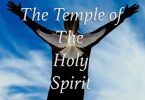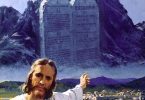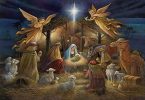The Solemnity of the Holy Trinity (Year B)
Scriptures: Dt. 4:32-34, 39-40; Ps. 33:4-9, 18-19, 20, 23; Rm. 8:14-17; Mt. 28:16-20
The Church celebrates the Solemnity of the Holy Trinity on the Sunday after Pentecost, although during the first thousand years, the Church never celebrated the feast of the Holy Trinity in the Church. The doctrine on the Holy Trinity was developed in the first four centuries to fight against the heresies which propagated wrong teaching on the divinity of Christ. They denied the fullness of divinity of Christ. The bishops celebrated this feast according to their suitability at any time of the year in their dioceses. The Western Church also did not feel it necessary to have a separate celebration dedicated to the Holy Trinity in the first millennium because the mystery was part and parcel of their lives. It was Pope John XXII (1334) who made the feast applicable to the universal church.
It is interesting to note that the understanding of celebrating the mystery of the Holy Trinity was originally celebrated in the Eastern Churches before it was introduced in the Western church (Church of Rome). Today the eastern church celebrate the mystery of the Holy Trinity at every Eucharist on Sundays. There is no specific celebration dedicated to the Holy Trinity in the eastern church. They have a day dedicated to all saints after the solemnity of Pentecost in their liturgical calendar.
The Western church i.e. the Roman Catholic Church has set aside the Sunday after the Pentecost to celebrate this mystery, which has a unique insight. After the coming of the Holy Spirit, the apostles began to understand the mysteries of God which Christ had explained to them. The descent of the Holy Spirit helped them reflect on the life of the Holy Trinity. It is so true that we cannot comprehend the life of God without the Holy Spirit. It enables us to penetrate the mysteries of God.
The mystery of the Holy Trinity is the central mystery of the Christian faith and life. God reveals himself in this mystery. It is a source of all the other mysteries of faith. It enlightens other Christian mysteries. It is the most fundamental or essential teaching of the Catholic Church. (CFR. Catechism of the Catholic Church (CCC) no. 234). It is well articulated in the Nicene creed as well as in the apostle’s creed.
The traditional Christian practice shows us that the teaching of the Holy Trinity was practised in daily lives. The people always signed themselves with the sign of the cross at the moment of their activities with three fingers when they went out of their homes, started some work, journey, etc. They started all their prayers in the name of the Holy Trinity. They also ended their prayers by glorifying the Holy Trinity. All the sacraments are also administered in the name of the Holy Trinity. All the blessings of the people and things are given in the name of the Holy Trinity. All these helped people to remember the Triune God in their daily lives.
Pope Francis in one of his addresses while talking about the Holy Trinity says that the Christian journey is essentially a Trinitarian Journey. The Holy Spirit guides us to full knowledge of Christ’s teachings and also reminds us of what Jesus taught us. Jesus in return, came into the world to make the Father known to us, guide us to Him, and reconcile us with Him. Everything in Christian life revolves around the mystery of the Holy trinity. This mystery embraces our entire life and our entire Christian being.
The mystery of the holy trinity holds a prime place in the hierarchy of truths in our catholic faith. we are called to meditate on it every day. We are called to embrace the mystery to imitate God in our day to today’s lives.
The readings of the day help to realize how we can embrace the mystery of the Trinity in other words, the life of God. The Gospel tells us that the apostles were told to go in the world to baptize in the name of the Father and of the Son and the Holy Spirit. We are all baptized in the same formula. We are sealed by His Triune name. God has thus given us the invitation to enter into a relationship. By the virtue of baptism, we are already entered into the Divine life of our Triune God. We are made the children of God. Our baptism has enabled us to call God, Abba Father. We have a unique relationship with God, we are children of God.
Prophet Isaiah in the first reading would recognize this relationship with God. He recalls the wonderful deeds God had done for the people of Israel. They never heard of such things among the other people. The most striking sentence is God has taken them as a nation for himself from the midst of another nation, by trial, by signs, by wonders and by war, by a mighty hand and an outstretched arm, and by great deeds of terror, etc.
St. Paul too realized it in his life. He tells the Romans in the second reading about it. He reminds them that they are sons of God. The Holy Spirit who lives in them helps them cry to God “Abba Father”. If we become the children of God then we also become the heirs of God and the fellow heirs with Christ.
What a privilege to be the people of God! What a privilege to be in company with Christ as a hair of the kingdom! The mystery of the Trinity reveals to us this truth; God invites us to live in Him. We are chosen people to share His life. We are chosen to be the heir of his kingdom. The more we ponder on the mystery the more we shall enter into the reality of Triune God. Let us make conscious efforts to live the mystery of the Trinity.






